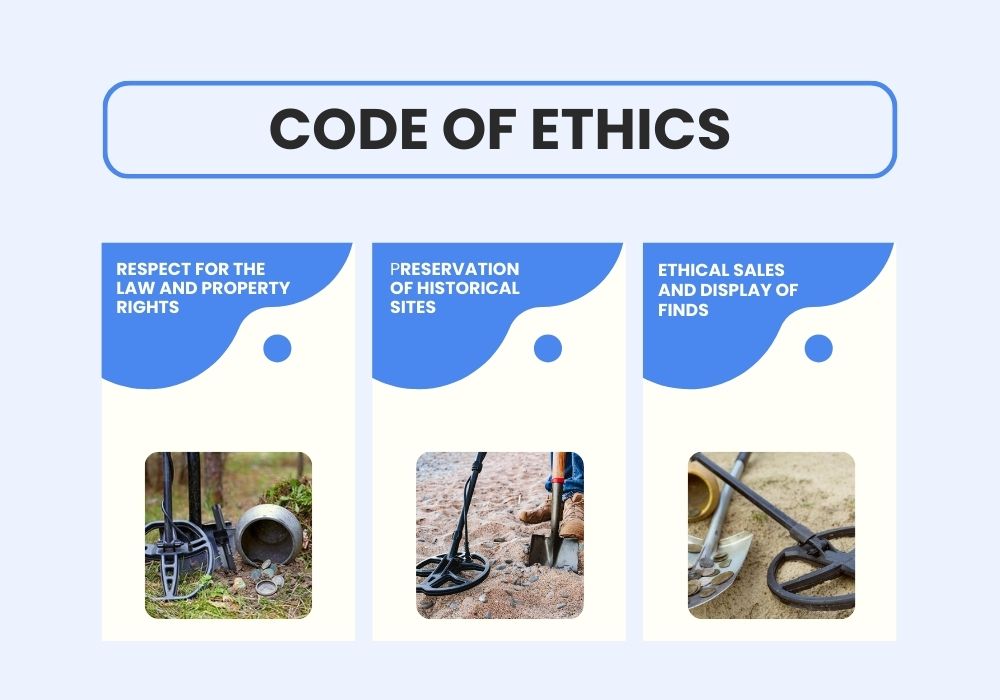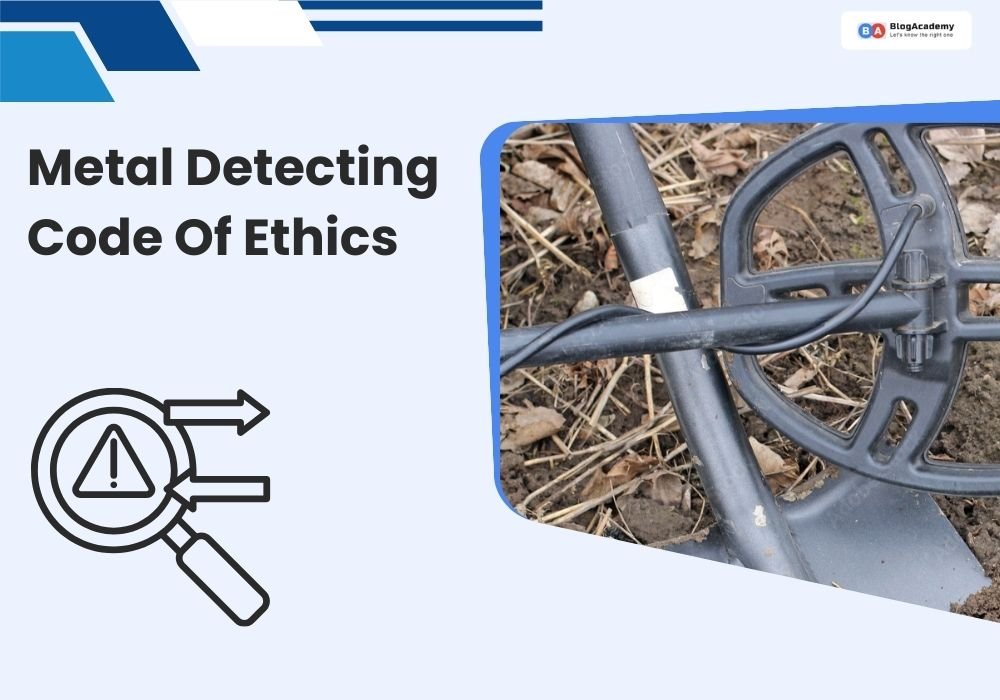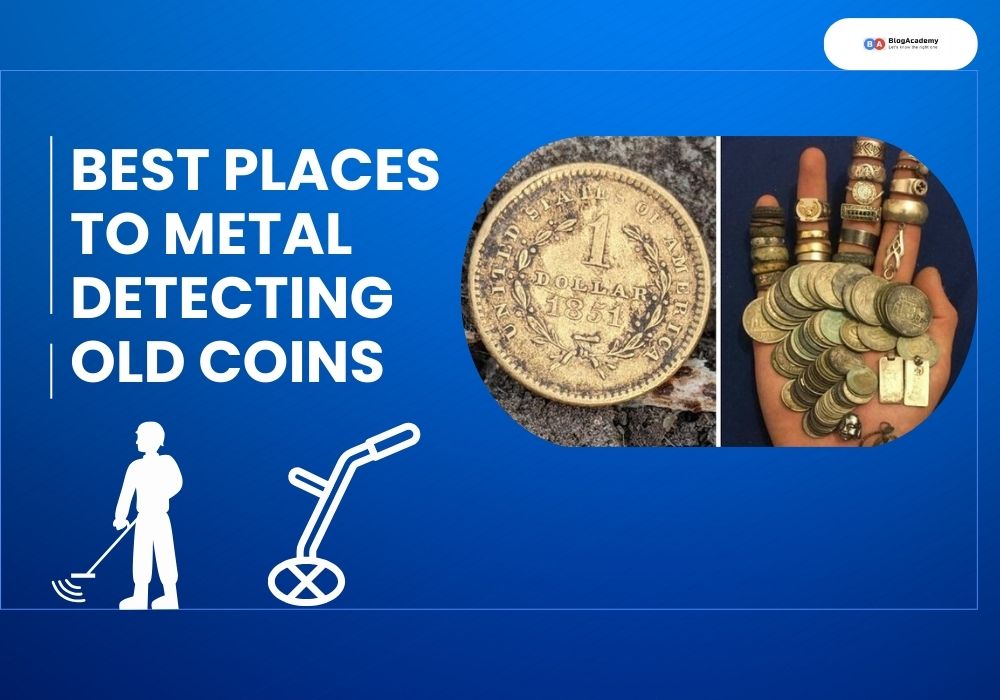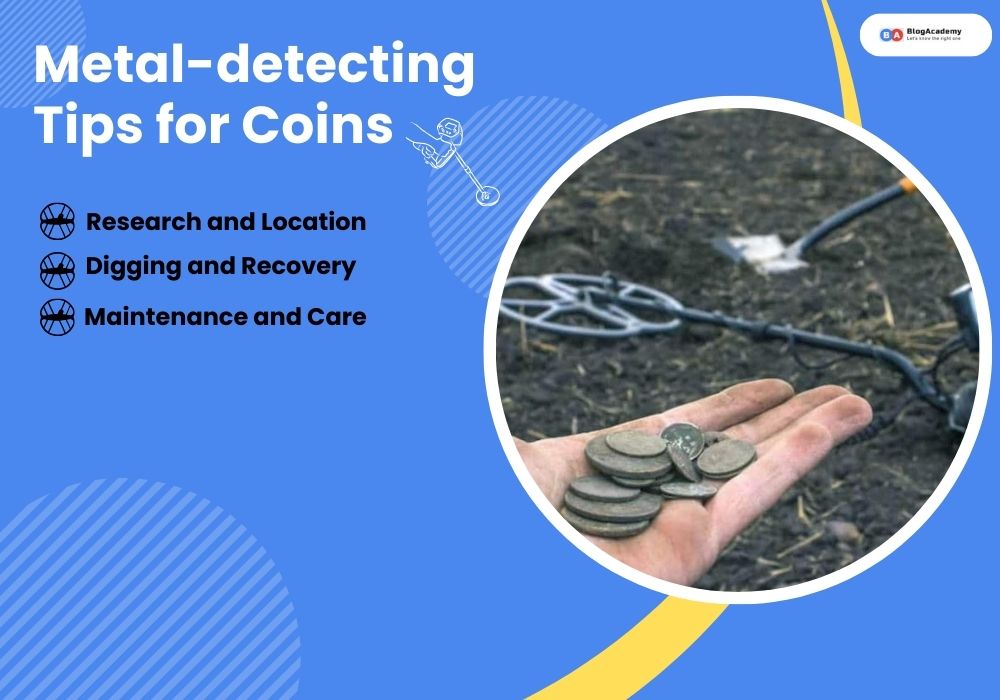Embarking on a thrilling journey through history, the Metal Detecting Code Of Ethics serves as a guiding light for enthusiasts. These fundamental guidelines aren’t just rules; they’re the pillars that uphold responsible, respectful metal-detecting practices. From seeking permission to respecting historical significance, this code ensures enthusiasts preserve history while honoring the environment and landowners’ rights. Let’s delve into these essential principles, guiding us to unearth the past responsibly while fostering a positive reputation for the metal-detecting community.
Understanding the Metal Detecting Code of Ethics
The Metal Detecting Code of Ethics serves as a framework for conduct, emphasizing the importance of respecting archaeological sites, obtaining necessary permissions, and handling unearthed items responsibly. Let’s delve into its key principles:

Respect for the Law and Property Rights
Adhering to local laws and regulations is fundamental in metal detecting. Before sweeping your detector over any ground, familiarize yourself with the laws governing the area. Many regions have specific rules on metal detecting in public parks, historical sites, and private properties.
Respecting property rights is equally essential. Seek explicit permission from property owners before detecting on private land. Obtain written consent, outlining the duration and scope of your search. Always leave the area as you find it, ensuring no damage to the property.
Preservation of Historical Sites
Historical sites are time capsules that hold stories of the past. When detecting in these areas, prioritize preservation. Use non-invasive methods and tools to avoid damaging artifacts and the surrounding environment. Refrain from digging indiscriminately; instead, focus on targeted, minimal-impact excavation.
Should you discover historically significant items, handle them with care. Refrain from cleaning or altering them; instead, seek expert advice on proper preservation methods. Reporting significant finds to local authorities contributes to preserving history for everyone to appreciate.
Environmental Responsibility
Metal detecting often takes enthusiasts into natural settings. While indulging in the hobby, maintain environmental consciousness. Avoid trampling vegetation or disturbing wildlife habitats. Dispose of any trash or debris found during your search responsibly.
Consider participating in organized clean-up initiatives. Many metal-detecting communities organize events aimed at removing litter and preserving the natural beauty of the areas they explore. It’s a way to give back to the environment and demonstrate responsible hobbyist behavior.
Community Engagement and Education
Engaging with the metal-detecting community fosters a culture of responsibility and shared knowledge. Participate in forums, workshops, and local clubs to exchange experiences and learn about ethical detecting practices.
Educate fellow enthusiasts, especially newcomers, about the importance of the code of ethics. Encourage responsible behavior and emphasize the significance of preserving historical and environmental integrity.
Ethical Sales and Display of Finds
Should you decide to sell or display your finds, ethical considerations still apply. Ensure any items for sale comply with legal and ethical standards. Offer detailed information about the item’s provenance and history to potential buyers.
For public displays or exhibitions, provide context to the artifacts. Share information about their discovery and historical significance, contributing to a broader understanding of the past.
Why Ethics Matter in Metal Detecting?
Ethical conduct in metal detecting isn’t just a set of rules; it’s a way to ensure the sustainability of the hobby and the preservation of our heritage. By following these ethical guidelines, metal-detecting enthusiasts contribute positively to society in several ways:
- Preserving History: Respecting historical sites and artifacts helps preserve our cultural heritage. By leaving sites undisturbed and reporting significant finds, enthusiasts actively contribute to the preservation of historical knowledge for future generations.
- Environmental Stewardship: Adhering to ethical principles such as proper waste disposal and filling holes minimizes the environmental impact of metal detecting. This ensures that the natural landscape remains unharmed and beautiful for everyone to enjoy.
- Community Engagement: Building positive relationships with landowners, authorities, and local communities fosters a sense of goodwill and trust. This paves the way for continued cooperation and support for the hobby.
- Promoting Responsible Hobbyists: Setting an example of ethical behavior encourages others to follow suit. By educating newcomers and existing enthusiasts, the culture of responsible metal detecting is perpetuated, ensuring the hobby’s longevity.
Importance of Metal Detecting Code of Ethics
Adhering to the Metal Detecting Code of Ethics is not merely a set of rules; it’s a responsibility towards preserving history and fostering a positive reputation for the metal detecting community. Here’s why it’s crucial:
- Preservation: It helps protect historical sites and artifacts by promoting careful excavation and minimizing disturbance.
- Respect: Encourages respect for property rights, seeking permission before detecting on private land, and leaving areas as found.
- Environmental Care: Emphasizes leaving no trace, ensuring minimal impact on the environment while detecting.
- Safety: Highlights safety measures to avoid accidents, such as filling holes and handling equipment responsibly.
- Education: Promotes educating oneself about local laws and history, fostering a better understanding and appreciation for the hobby.
By adhering to this code, enthusiasts uphold the integrity of metal detecting, fostering a positive reputation and preserving history for future generations.
Tips for Responsible Metal Detecting
While following the code of ethics forms the foundation of responsible metal detecting, here are additional tips to enhance your ethical practice:
- Research Areas Thoroughly: Before detecting, research the history of the area to identify potential sites with historical significance. Understanding the context of the location enhances the value of your finds.
- Use Proper Equipment: Invest in quality metal detecting equipment and use it responsibly. Adjust settings to minimize unnecessary disturbance and maximize accuracy.
- Educate Others: Share the importance of ethical metal detecting with fellow enthusiasts. Educating others about responsible practices contributes to a community committed to preserving history.
- Join Metal Detecting Clubs: Joining local metal detecting clubs provides a platform to learn from experienced individuals, exchange knowledge, and collectively promote ethical practices.
Conclusions
Metal detecting is more than just a hobby; it’s a journey through time. However, this journey must be undertaken with a sense of responsibility and respect for the past, the environment, and the community. Adhering to the Metal Detecting Code of Ethics isn’t just a formality; it’s a commitment to preserving our history and landscapes for generations to come.
Enthusiasts who follow these ethical guidelines not only enjoy their hobby responsibly but also contribute positively to society. So, before you embark on your next treasure hunt, remember: that ethical metal detecting is not only about finding treasures but about leaving a positive and lasting impact on the world around us.



